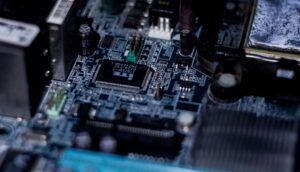Artificial Intelligence Policy
Artificial Intelligence (AI) has become a hot topic in recent years, prompting governments and organizations to develop policies addressing the ethical and regulatory implications of this rapidly advancing technology. As AI continues to evolve and impact various sectors, it is crucial to establish guidelines and frameworks that ensure responsible use and minimize potential risks.
Key Takeaways:
- AI policies are necessary to address the ethical and regulatory challenges associated with this technology.
- Government agencies and organizations are developing guidelines and frameworks to govern AI use.
- Ethical considerations, transparency, and accountability are key elements of AI policies.
- Collaboration and international cooperation are essential for effective AI governance.
Why AI Policy Matters
AI has the potential to significantly impact various aspects of society, including healthcare, finance, transportation, and more. However, with great power comes great responsibility. AI policy plays a crucial role in shaping the development and deployment of this technology to ensure its benefits are maximized and risks are mitigated. Without appropriate policies in place, AI could lead to unintended consequences and harmful effects on individuals and society as a whole.
The Elements of AI Policies
Effective AI policies encompass various elements aimed at promoting responsible AI development and use. Key components commonly included in AI policies are:
- Ethical considerations: AI policies should address ethical concerns, such as privacy, bias, and accountability.
- Transparency: Ensure AI systems are explainable, and provide transparent information on how decisions are made.
- Accountability: Establish mechanisms to hold organizations and individuals accountable for AI-related actions and decisions.
- Regulation: Implement regulations to ensure compliance with ethical standards and prevent AI misuse.
*AI policies must strike a balance between innovation and regulation to foster responsible AI development and adoption.
International Cooperation in AI Policy
As AI is a global phenomenon, international cooperation is crucial in developing effective AI policies. The collaboration between governments, organizations, and experts from various countries allows sharing knowledge and best practices to address common challenges. Additionally, international cooperation promotes consensus-building on ethical norms and regulatory standards that can guide AI research, development, and deployment worldwide.
AI Policy Examples:
| Country/Agency | AI Policy Highlights |
|---|---|
| European Union (EU) |
|
| United States (US) |
|
*These are just a few examples, and many other countries and organizations have also developed their own AI policies.
The Future of AI Policy
The rapidly evolving nature of AI requires continuous adaptation of AI policies to keep pace with technological advancements. As AI becomes more integrated into society, new ethical challenges and regulatory issues will arise. Ongoing dialogue, research, and collaboration are necessary to ensure AI policies remain effective and relevant in addressing emerging AI-related concerns.
*The development and refinement of AI policies should be an ongoing process to accommodate future challenges and advancements.
Conclusion
Artificial Intelligence policies are crucial in shaping the responsible development and use of AI. They help address ethical concerns, ensure transparency and accountability, and strike a balance between innovation and regulation. International cooperation plays a vital role in developing effective AI policies that can guide AI research, deployment, and governance globally. As AI continues to advance, continuous adaptation of policies is necessary to address emerging challenges and ensure the responsible use of AI technology.

Common Misconceptions
Misconception 1: Artificial Intelligence will replace human workers
One common misconception about Artificial Intelligence (AI) is that it will completely replace human workers, leading to widespread unemployment. However, this is not entirely true.
- AI is designed to complement human work, not replace it.
- AI can perform certain tasks faster and more efficiently, allowing humans to focus on more complex and creative work.
- AI may eliminate some jobs, but it also creates new job opportunities, such as AI trainers and developers.
Misconception 2: AI will have human-like intelligence
Another misconception is that AI will possess human-like intelligence and consciousness. While AI systems are becoming more sophisticated, they do not possess true human intelligence.
- AI lacks emotions, intuition, and common sense reasoning that humans possess.
- AI systems are based on algorithms and data analysis, whereas human intelligence is multi-faceted and complex.
- AI can only perform tasks it has been trained for, and it cannot replicate the entirety of human cognitive abilities.
Misconception 3: AI is only for large corporations
Many people mistakenly believe that only large corporations can benefit from AI technology. However, AI is accessible and can be utilized by organizations of all sizes.
- There are various AI tools and platforms available for small and medium-sized businesses.
- AI can help optimize processes, improve customer experience, and make businesses more efficient.
- AI technology is constantly evolving, making it more affordable and accessible for organizations of all scales.
Misconception 4: AI is autonomous and can make decisions on its own
There is a misconception that AI is completely autonomous and can make independent decisions. However, AI systems are designed to assist and augment human decision-making, not replace it.
- AI algorithms are created and trained by humans, and they operate based on predefined rules and patterns.
- AI systems require human supervision and oversight to ensure ethical decision-making and accountability.
- AI can provide recommendations and insights, but the final decisions are still made by human operators.
Misconception 5: AI is a threat to humanity
One of the most prevalent misconceptions about AI is that it poses a significant threat to humanity. This misconception is often fueled by fictional depictions of AI in movies and books.
- AI systems are programmed to act within predefined bounds and cannot develop intentions or desires on their own.
- Ethical frameworks and regulations are being developed to ensure responsible and safe use of AI technology.
- The focus of AI development is to enhance human capabilities rather than replace or harm humans.

AI Research and Development by Country
As artificial intelligence continues to shape the future, countries around the world are investing heavily in research and development to stay at the forefront. This table presents the top 10 countries in terms of AI research expenditure.
| Country | AI Research Expenditure (USD) |
|---|---|
| United States | 22 billion |
| China | 10.6 billion |
| United Kingdom | 2.9 billion |
| Canada | 2.1 billion |
| Germany | 1.8 billion |
| France | 1.7 billion |
| Japan | 1.6 billion |
| Australia | 1 billion |
| India | 900 million |
| South Korea | 700 million |
AI Job Market Growth
The rise of artificial intelligence brings forth a surge in demand for skilled professionals. This table highlights the projected growth of AI-related job openings in the next five years.
| Year | Projected AI Job Openings |
|---|---|
| 2022 | 800,000 |
| 2023 | 1.2 million |
| 2024 | 1.6 million |
| 2025 | 2 million |
| 2026 | 2.4 million |
AI Applications by Industry
Artificial intelligence is revolutionizing various industries. This table showcases the diverse range of sectors utilizing AI in their operations.
| Industry | Main AI Applications |
|---|---|
| Healthcare | Medical diagnosis, drug discovery |
| Finance | Fraud detection, algorithmic trading |
| Transportation | Autonomous vehicles, route optimization |
| Retail | Personalized recommendations, inventory management |
| Manufacturing | Quality control, predictive maintenance |
AI Ethics Principles
As AI becomes more prevalent, the need for ethical guidelines becomes crucial. This table outlines some key principles that experts propose for the ethical development and use of artificial intelligence.
| Principle | Description |
|---|---|
| Transparency | AI systems should be explainable and understandable to facilitate trust. |
| Accountability | Individuals and organizations responsible for AI must be held accountable for its actions and impact. |
| Fairness | AI systems should be designed and implemented in a fair and unbiased manner. |
| Privacy | AI should respect and uphold individuals’ privacy rights. |
| Safety | AI systems should prioritize the safety of users and avoid harm. |
Investment in AI Startups
Venture capitalists and corporations alike are investing heavily in AI startups. Here are the top 5 AI startups by funding received.
| Startup | Total Funding (USD) |
|---|---|
| OpenAI | 1.9 billion |
| SenseTime | 1.6 billion |
| UiPath | 1.3 billion |
| Graphcore | 1 billion |
| Zoox | 0.98 billion |
AI in Education
AI is transforming the education sector, offering personalized learning experiences and advanced tools. The table below showcases AI applications in education.
| Application | Description |
|---|---|
| Intelligent Tutoring Systems | AI-powered systems that provide individualized instruction and feedback to students. |
| Automated Grading | AI algorithms that can assess students’ assignments and exams, providing rapid feedback. |
| Smart Content | AI tools that customize educational content based on students’ preferences and learning style. |
| Learning Analytics | Using AI to analyze large sets of educational data to identify patterns and improve teaching methods. |
| Virtual Reality Learning | AI-driven virtual environments that simulate real-world scenarios for immersive learning experiences. |
AI in Entertainment
Artificial intelligence has found its way into the entertainment industry, enhancing user experiences and content creation. Let’s explore AI applications in entertainment.
| Application | Description |
|---|---|
| Recommendation Systems | AI algorithms that suggest personalized content based on user preferences and behavior. |
| Chatbots | AI-powered virtual assistants that engage with users, answering questions and providing recommendations. |
| Virtual Influencers | AI-generated characters with social media presence, used for marketing and brand collaborations. |
| Content Creation | AI tools that aid in generating music, art, and even writing scripts for movies or TV shows. |
| Real-time Performance Tracking | Using AI to track and analyze live performances, enhancing the audience experience and artist feedback. |
AI in Cybersecurity
Cybersecurity is a critical area where artificial intelligence plays a vital role in identifying threats and protecting sensitive data. The table below presents key applications of AI in cybersecurity.
| Application | Description |
|---|---|
| Threat Detection | AI-powered systems that continuously monitor networks for potential threats and anomalies. |
| Behavioral Analysis | AI algorithms that learn and detect abnormal behavior patterns, identifying potential insider threats. |
| Bot Detection | Using AI to distinguish between legitimate users and automated malicious bots to prevent attacks. |
| Vulnerability Assessment | AI tools that scan and assess applications and systems for potential vulnerabilities or weaknesses. |
| Security Automation | AI systems that automate routine security tasks, enabling faster response times and reducing human error. |
Conclusion
From national investments to job market growth, AI applications in various sectors, ethical considerations, and investment in startups, artificial intelligence policy encompasses a vast range of elements. As governments, organizations, and individuals navigate the challenges and opportunities presented by AI, the proper understanding and utilization of this transformative technology will shape our future.
Frequently Asked Questions
Artificial Intelligence Policy
What is artificial intelligence policy?




